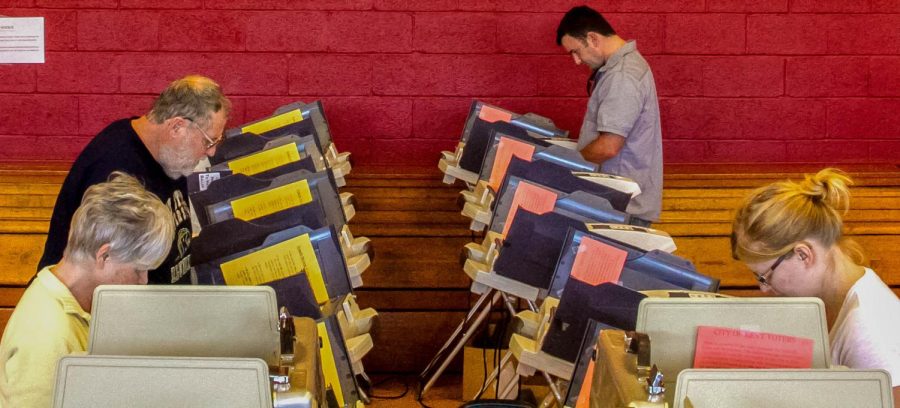Up in smoke: Ohio voters reject pot
November 3, 2015
The push to legalize recreational and medicinal marijuana, and the fight to prevent legalization, ended its tug-of-war controversy Tuesday when Ohio voters approved Issue 2 and rejected Issue 3.
State Issue 3, which would have granted a monopoly for the commercial production and sale of marijuana for recreational and medicinal purposes, failed, with only 35.86 percent of voters approving the issue with more than 98 percent of precincts reporting.
Issue 3 would have allowed adults 21 years and older to purchase, possess, transport and share up to one ounce of marijuana for medicinal or recreational use. It would also allow a person with a license to grow, use and share up to eight ounces of homegrown marijuana, including up to four flowering plants at a time.
It also would have created a network of 10 authorized growing facilities, called Marijuana Growth, Cultivation and Extraction facilities, operating independently of one another to prevent collusion.
However, the issue would have given exclusive rights for commercial marijuana growth, cultivation and extraction to the self-designated owners of these 10 parcels of land statewide, leading many to say it would create a monopoly on the marijuana industry in Ohio.
Because Issue 3 failed and Issue 2 passed, the effort to legalize marijuana in Ohio is now dead.
The passage of Issue 3 allows the Ohio Ballot Board to regulate further ballot initiatives and measures involving monopolies.
Issue 2, the anti-monopoly amendment that protects the initiative process from being used for personal economic benefit, was narrowly passing with 51.69 percent of the vote with more than 98 percent of precincts reporting.
Also known as the Ohio Initiated Monopolies Amendment, Issue 2, is a constitutional amendment proposed by the Ohio General Assembly that will ban special interest groups from amending the Ohio Constitution to create monopolies, oligopolies and cartels.
Richie Mulhall is a city reporter for The Kent Stater. Contact him at [email protected].












